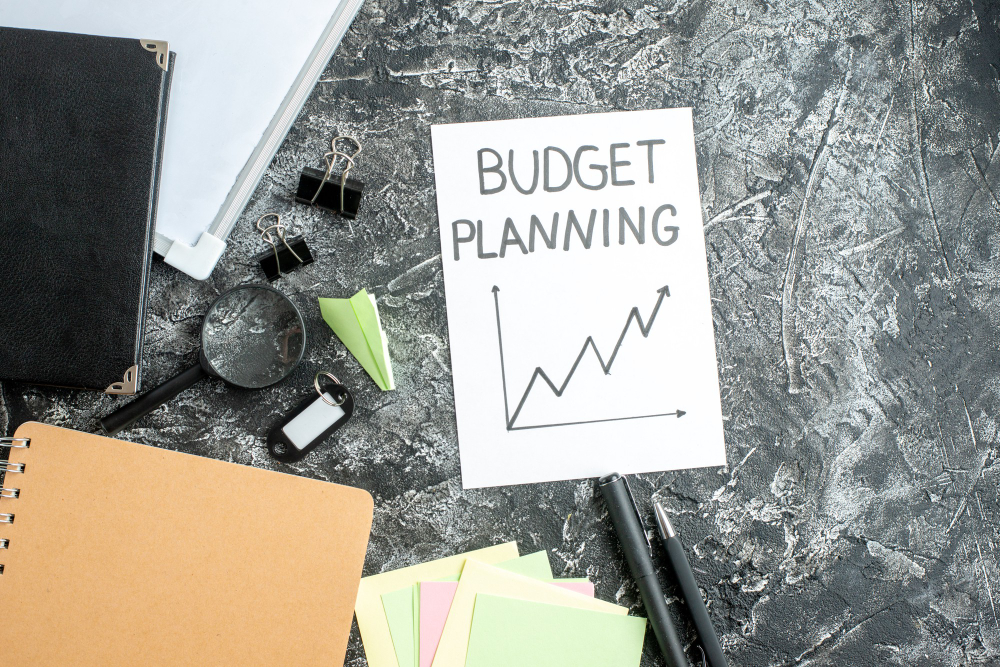Budgeting is a critical aspect of successful event management. Whether you’re organizing a corporate conference, a wedding, a music festival, or any other type of event, careful financial planning ensures that you can deliver a memorable experience within your financial constraints. Effective budgeting not only helps you manage costs but also allows you to allocate resources efficiently, negotiate with suppliers, and ultimately achieve your event objectives without financial stress. Here’s a comprehensive guide on how to effectively budget for event management.
10 Tips for In-person Event Budget Management
Let’s discuss the top tricks and hacks to consider for event budget management.
1. Define Your Event Objectives and Scope
Before diving into budgeting, truly outline the desires and scope of your event. Understand the cause of the event, the target audience, methods of event registration and the anticipated results. This foundational knowledge will manual all your budgeting selections and ensure that each cost aligns with the event’s goals.
2. Create a Detailed Budget Spreadsheet
Start by growing a complete spreadsheet that outlines all capability prices and income resources on your event. Include classes including venue condo, catering, decorations, audiovisual equipment, advertising and merchandising, staff wages, allows/licenses, insurance, contingency funds, and some other applicable prices. Break down every category into specific line items for higher readability and accuracy.
3. Research and Estimate Costs
Gather fees and estimates from a couple of providers and companies for every rate class. Research competitors’ market prices to make certain your price range estimates are practical and competitive. Be thorough in your studies to avoid sudden expenses later in the making plans technique.
4. Allocate Funds Wisely
Once you’ve predicted the costs, allocate a price range based totally on priority and importance to the occasion’s success. Allocate a larger portion of your price range to vital factors which include venue, enjoyment (if relevant), and catering, while maintaining a contingency reserve for unexpected prices.
5. Negotiate with Suppliers
Negotiation abilities are critical in event budgeting. Don’t hesitate to barter costs, particularly with the most important providers like venues, caterers, and audiovisual providers. Look for possibilities to bundle offerings or steady reductions for early reserving or bulk orders. Effective negotiation can significantly reduce your overall fees.
6. Track Expenses Closely
Throughout the event budgeting plans procedure, maintain a close eye to your event costs. Update your price range spreadsheet regularly to tune real prices against your initial estimates. This will assist you become aware of any budget discrepancies early on and make vital modifications to keep away from overspending.
7. Monitor Cash Flow and Payments
Keep track of your cash flow to make certain that you have sufficient funds to be had at every degree of the planning system. Schedule bills to suppliers and vendors strategically to avoid coin flow gaps or overdue charges. Consider putting in charge milestones tied to the event’s milestones to control bills efficiently.
8. Consider Contingency Planning
No matter how meticulously you propose, sudden charges can get up throughout event control. Allocate a contingency fund—generally around 10-20% of your general price range—to cover unforeseen costs inclusive of ultimate-minute adjustments, system disasters, or climate-related changes. Having a contingency plan will offer economic safety and versatility throughout the occasion.
9. Review and Adjust Regularly
As your event approaches, periodically review your price range and make necessary changes based on updated information or changing instances. Consult together with your team and stakeholders to ensure all people are aligned with the budgetary choices and any changes.
10. Post-Event Evaluation
After the occasion concludes, conduct a thorough financial assessment. Compare actual costs against your budget to identify areas where you exceeded or saved prices. Analyze the effectiveness of your budgeting strategies and report training found out for Destiny events.
Conclusion
Effective budgeting is a cornerstone of successful event control. By carefully defining goals, growing a detailed budget spreadsheet, researching costs, allocating budget accurately, negotiating with suppliers, monitoring costs closely, and retaining a contingency plan, event organizers can make certain financial fields and acquire event achievement within budgetary constraints. Continuous overview and assessment of your budgeting strategies will similarly refine your skills and contribute to future event management successes.
Mastering the artwork of budgeting in event control calls for interest in elements, proactive planning, and the capacity to conform to converting instances. With these hints, you are well-ready to navigate the complexities of event budgeting and deliver memorable reviews that exceed expectations.
FAQs
Q1. How do I start budgeting for event management?
A1. To start budgeting for event management, begin by defining your event objectives and scope. This helps clarify your goals and guides all financial decisions throughout the planning process.
Q2. What should be included in a detailed event budget spreadsheet?
A2. A detailed event budget spreadsheet should include categories such as venue rental, catering, decorations, audiovisual equipment, marketing, staff wages, permits/licenses, insurance, and contingency funds. Each category should be broken down into specific line items for clarity.
Q3. Why is negotiating with suppliers important in event budgeting?
A3. Negotiating with suppliers in event budgeting is crucial as it helps in securing competitive prices, potentially reducing overall expenses. This is particularly effective when dealing with major costs like venue rentals and catering services.
Q4. How can I effectively track expenses during event planning?
A4. To effectively track expenses during event planning, maintain a close watch on your expenditures by updating your budget spreadsheet regularly. This allows you to monitor actual costs against initial estimates and make adjustments as needed to avoid overspending.
Q5. What should I do after the event to evaluate the effectiveness of my budgeting?
A5. After the event, conduct a thorough financial evaluation by comparing actual expenses against your budget. This helps identify areas where costs were managed well or exceeded, providing insights for improving budgeting strategies in future events.
